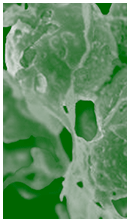Our Goal
Our overall goal is to assess the serial impact of payment policies implemented by the Centers for Medicare and Medicaid Services (CMS) on health outcomes, as measured by billing rates and prospective surveillance rates. Our main sources of data include infections reported National Healthcare Safety Network (NHSN) by participating hospitals, State Inpatient Databases (SID) and American Hospital Association databases.

The PAICAP Project's new specific aims
- Aim 1: Evaluate the impact of the CMS Health Care-Acquired Conditions
(HCAC) policy on healthcare-associated infections (HAI) among Medicare,
Medicaid and privately insured patients - Aim 2: Evaluate the impact of the CMS Value-Based Purchasing program
on HAI rates reported to NHSN - Aim 3: Explore reasons for differences in risk-adjusted rankings for
HAIs using billing vs. NHSN data using anonymized data - Aim 4: Examine the impact of financial penalties on HAI rates for hospitals
that care for a high proportion of poor or minority patients
This study will allow us to understand the continued impact of CMS policies on hospitals and patients, so that we can help future decision-making by policymakers.
Webinars
We are pleased to announce that hospital recruitment has closed and we have just begun the analysis phase of the work. The PI of this study, Dr. Grace Lee, will be hosting a series of webinars starting on November 14, 2017 at 1pm (EST). You will have two additional opportunities to participate in the webinar: November 18th at 2pm (EST) and again on November 20th 1pm (EST). We hope to answer any questions you have about your participation in the study and to share our initial progress and next steps for the PAICAP project.
The dates of our webinars are:
Tuesday, November 14th at pm (EST)
Thursday, November 18th at 2pm (EST)
Monday, November 20th 1pm (EST)
Please RSVP to [email protected] with your name and your hospital name. We will send you the details needed to join the webinar. Thank you very much.
The PAICAP Project Team







